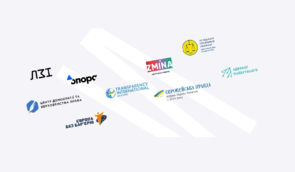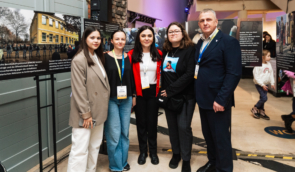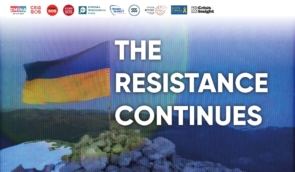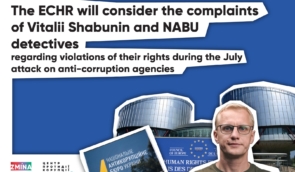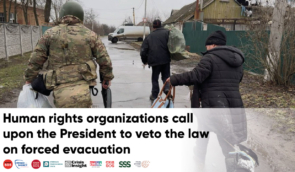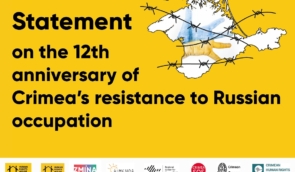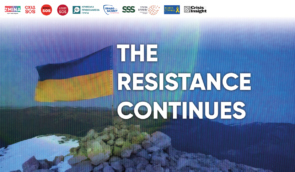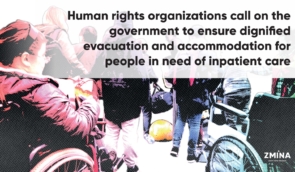16 stories about journalists-political prisoners: book “The Free Voices of Crimea” presented in Kyiv
On 10 April 2025, PEN Ukraine hosted a presentation of the book: “The Free Voices of Crimea” – a unique publication that tells the story of sixteen Crimean journalists persecuted for their professional and civic position. The stories of the political prisoners, most of whom are Crimean Tatars, were made public thanks to the initiative of PEN Ukraine, The Ukrainians Media, Vivat Publishing House and the Human Rights Centre ZMINA, with the support of the National Endowment for Democracy (NED).
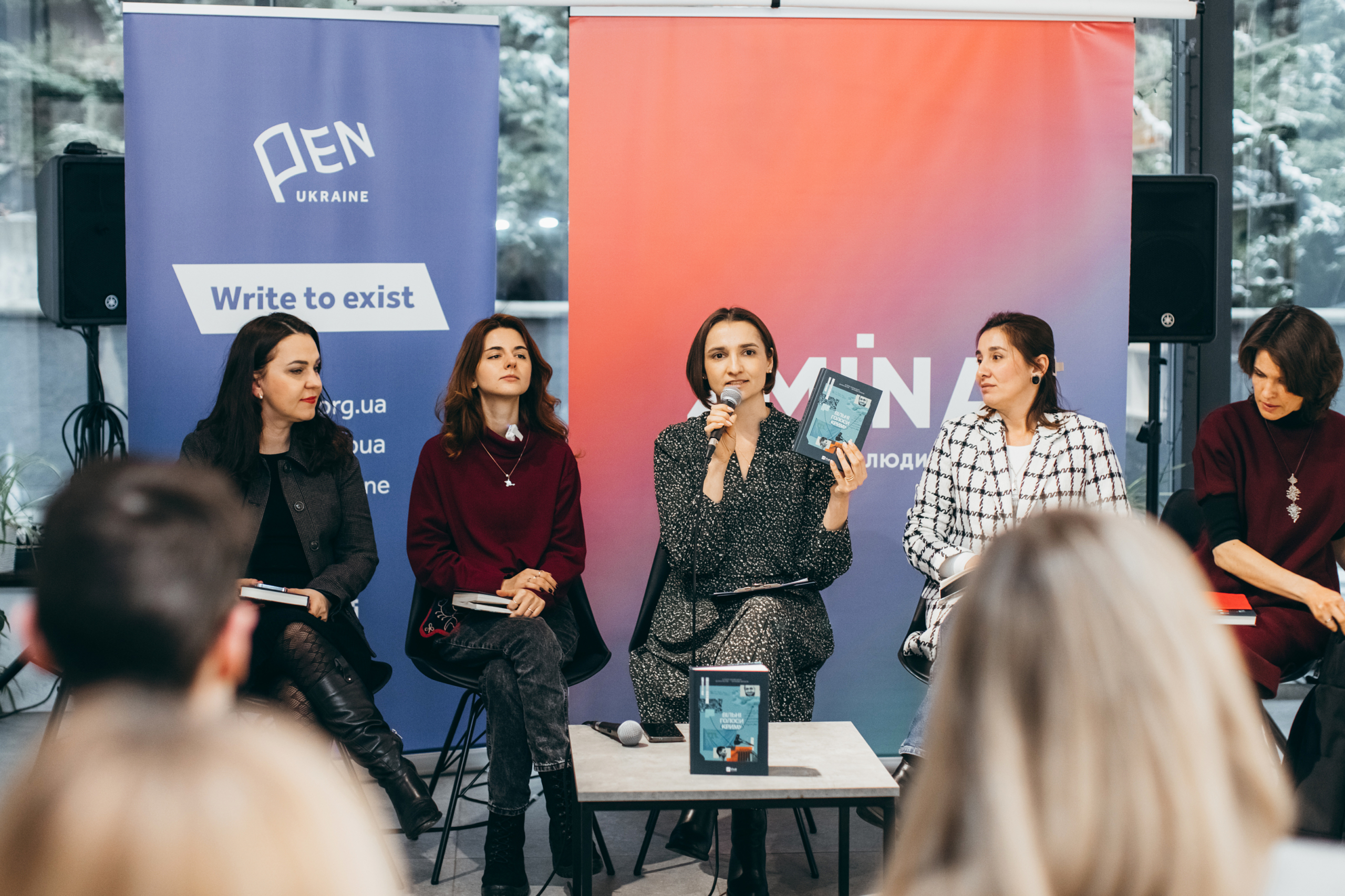
The book is more than a document. It is a testament to the power of the word and citizen journalism that emerged in response to the information isolation of occupied Crimea. It contains letters, diaries, and court speeches that have become the voices of those who have been imprisoned by Russia for decades.
The book was compiled by: Olesia Yaremchuk, Inna Bereznitska, and Anastasiia Levkova.
Authors of the texts: Oleksandra Yefymenko, Olesia Yaremchuk, Iryna Slavinska, Anastasiia Levkova, Rustem Khalilov, Yevheniia Henova, and Yeva Raiska.
The primary individuals featured in the book: Asan Akhtem, Amet Suleimanov, Remzi Bekirov, Osman Arifmemetov, Iryna Danylovych, Oleksii Bessarabov, Seiran Saliiev, Rustem Sheikhaliiev, Server Mustafaiev, Marlen (Suleiman) Asanov, Vilen Temerianov, Ruslan Suleimanov, Tymur Ibrahimov, Ernes Ametov, and Vladyslav Yesypenko.
Their courage has become a symbol of resilience in the face of repression. The initiator of the book is Tetyana Teren, a journalist, cultural manager and member of PEN Ukraine’s Executive Council. The publication is a logical continuation of the #SolidarityWords campaign launched in 2021 by PEN Ukraine and the Human Rights Centre ZMINA in support of Crimean political prisoners.
The presentation opened with an emotional speech by Leviza Dzhelialova, the wife of released political prisoner Nariman Dzhelyal. She shared her experience of struggle, pain and love, and for the first time read a letter from her husband, written after his release.
“I wanted to emphasise the problems faced by families, especially the wives of political prisoners. This is both a legal and bureaucratic struggle – finding lawyers, paperwork, communication with human rights defenders and international bodies. And all this is on the shoulders of the wives. But the most difficult thing is psychological pressure. A wife has to be strong, but she herself is under constant stress, especially when there are little children in the family. My older daughters understood everything. The youngest was not yet a year old. The hardest part was with my son – he was four when Nariman was captured and eight when he was released. I created an atmosphere of their father’s presence. We wrote him letters, and the children understood who he was, no matter what was said around them,” Leviza said.
When asked what kept her going, Leviza replied: “The first is responsibility for my children. The second is the Crimean Tatar community. Even though I didn’t want to communicate at the time, they came and supported me, and I am very grateful to them. Their support was incredibly important. And third — it was Nariman himself: his strength, his attitude to everything that was happening”.
The Head of the Board of the Human Rights Centre ZMINA, Tetiana Pechonchyk, stressed that during the entire period of work on the book: “The Free Voices of Crimea”, which lasted four years, none of the civilian journalists described in it – except Nariman Dzhelial – was released. Moreover, the situation has worsened: “During this time, the list of journalists imprisoned has grown. As of today, there are 30 Ukrainian journalists in Russia or in the occupied territories, 18 of whom are Crimean journalists. And most of them are Crimean Tatars”.
She added that when the book was almost ready for publication, in 2024, Russia imprisoned two more civilian journalists, Rustem Osmanov and Aziz Azizov, who had been working with the Crimean Solidarity initiative. Their stories were not included in the publication: “This shows that the repression continues. People are imprisoned on trumped-up charges, often for ‘terrorism’. Sentences range from 10 to 20 years. And, as the practice of exchanges shows, it is very, very difficult to return civilians“.
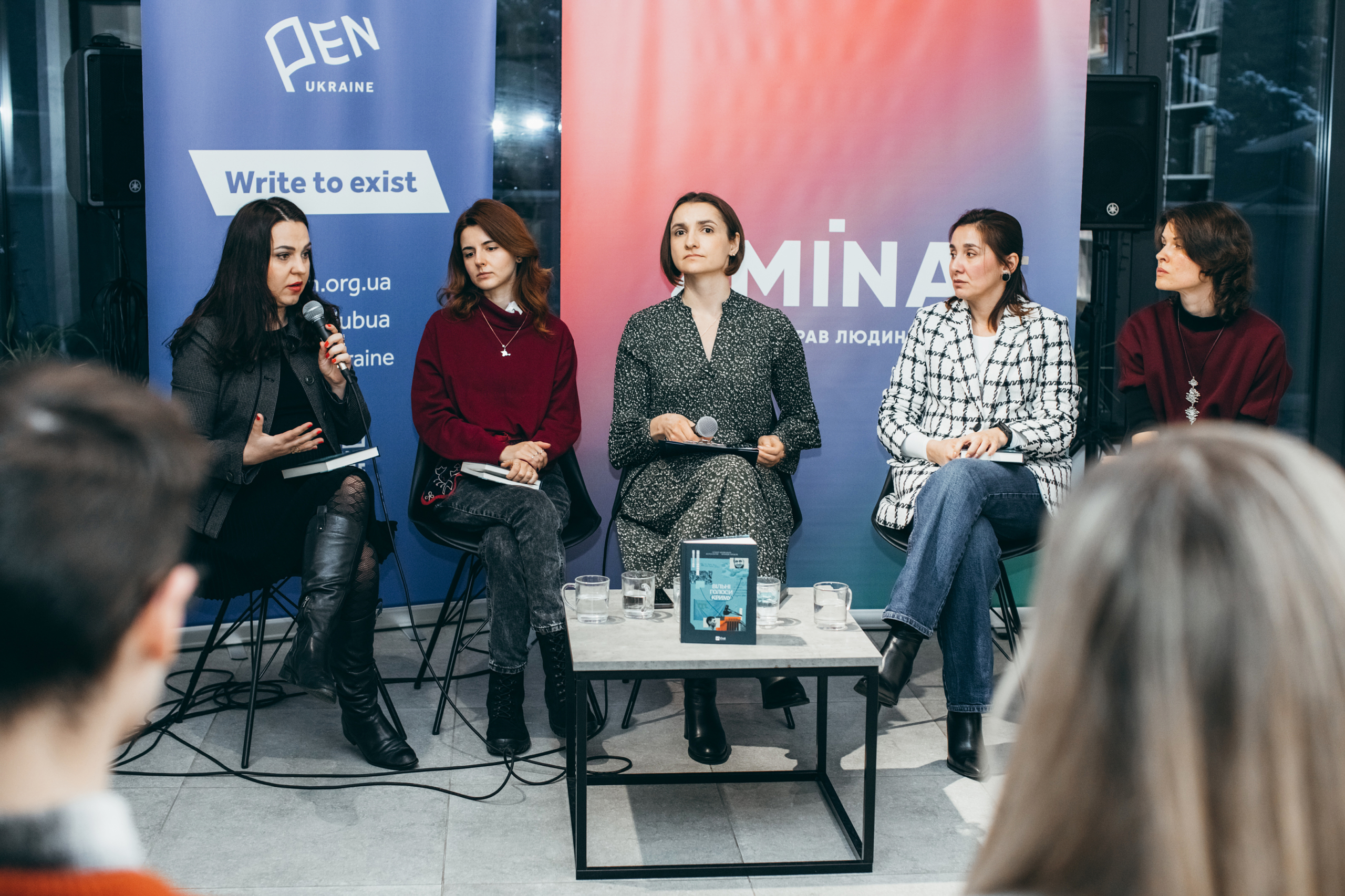
Tetiana Pechonchyk paid particular attention to the unique phenomenon of Crimean citizen journalism, which emerged in response to the information vacuum after the occupation of the peninsula.
“Back in 2014, ZMINA started recording the persecution of journalists in Crimea. After the occupation, 88% of local media stopped operating. Journalists were abducted, beaten, and tortured. All ties between Crimea and the outside world were cut off. That’s when ordinary people – citizen journalists – appeared and started documenting searches, detentions, and trials. They streamed everything live, told the truth and paid for it with their own freedom,” said the Head of the Human Rights Centre ZMINA.
According to the human rights defender, a significant number of political prisoners were forcibly transferred to the most remote regions of the Russian Federation – thousands of kilometres from Crimea. This is not only physical isolation, but also a serious barrier to communication with families and legal assistance.
In addition, many of them have serious health problems: “For example, Amet Suleimanov and Iryna Danylovych are in very poor health, but they do not receive proper medical care. This is part of the repressive machine that works without a break“.
Despite everything, Tetiana Pechonchyk concluded her speech with words of faith in the need to keep fighting: “Yes, it is extremely difficult to fight for people in Crimea now. But we have no choice but to continue“.
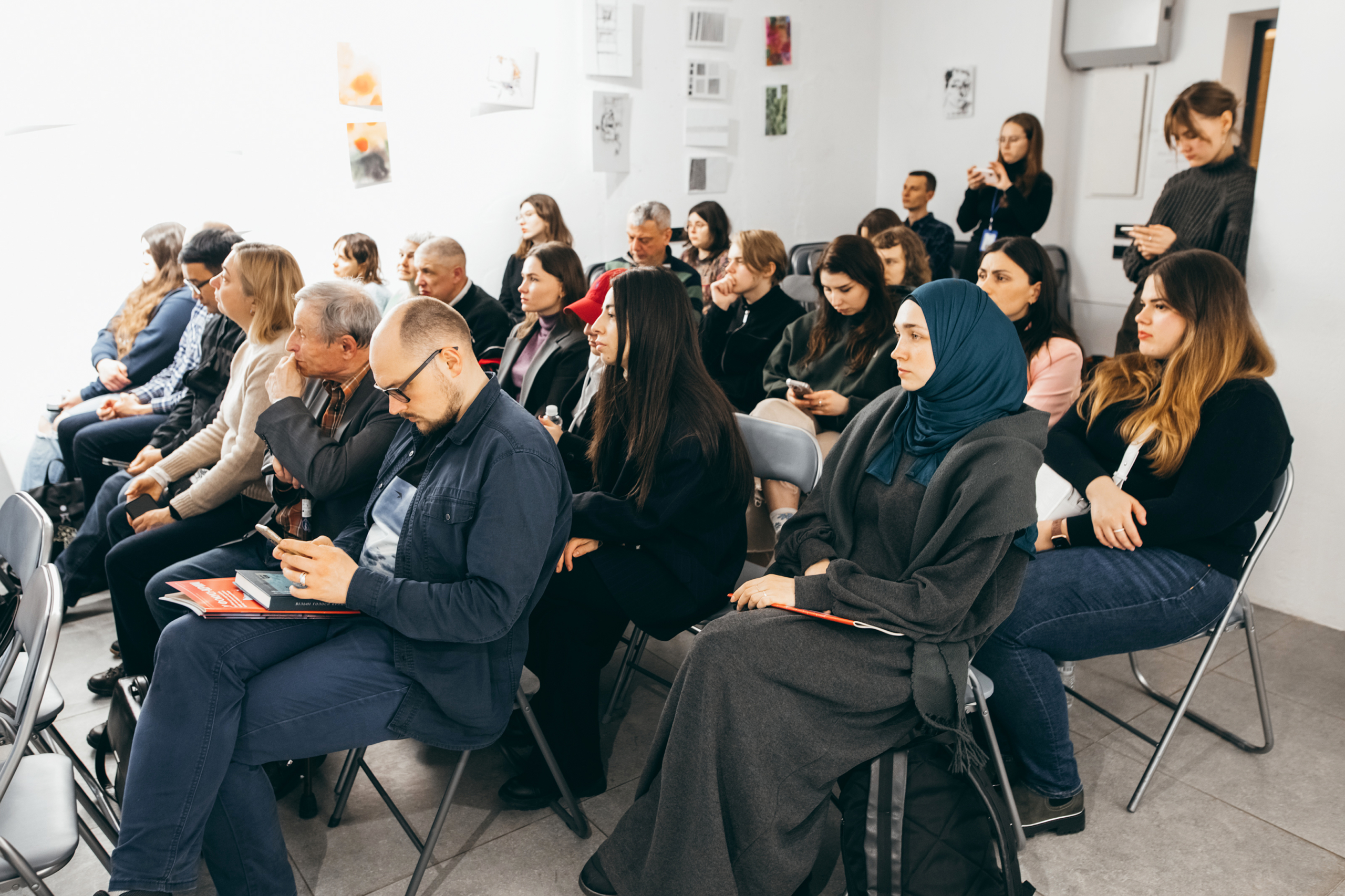
Oleksandra Yefymenko, a journalist, human rights defender and co-author of the book, emphasised the historical significance of Crimean Tatar journalism and the role it could play today if not for the occupation: “During the years of Ukraine’s independence, Crimean journalists have achieved a lot. If Russia had not existed, I am sure that Crimean Tatar journalism could have reached a very high level in the global media community“.
She relates her participation in the creation of the book to her personal history: “I was born in Ukrainian Crimea. When my home was occupied in 2014, I couldn’t help but react. This topic came into my life naturally. I couldn’t help but do it“.
Oleksandra Yefymenko also drew attention to how the information field and attention to Crimea has changed: “Unfortunately, journalists are now reluctant to cover the occupied territories. Meanwhile, the number of illegally imprisoned people is only growing. It has become much harder to talk and hear about these people“.
Anastasiia Levkova, a writer, author of the Crimean novel “Beyond the Perekop is Land”, co-founder of the “Crimean Fig / Qırım inciri” literary competition, editor and co-editor of the book “The Free Voices of Crimea”, spoke about the challenges faced by the book’s compilers while working on the portraits of political prisoners: “One of the main challenges was the genre and format. We worked with portraits, which is not just a biography. It is an attempt to convey the complexity and scale of the problem through the story of one person. We had to show both the personality and the context, and through one fate – a whole sea of others“.
Her speech ended with a painful but accurate reminder: “You will be next – that’s what the occupiers said to all the civilian journalists in Crimea. But knowing that they would be detained, they continued anyway. They knew they had to do it. Because silence is defeat“.
The event was moderated by Tetyana Teren and concluded with a reading of letters from political prisoners, including a letter from Osman Arifmemetov to Viktoriia Amelina, written a year before she was killed by Russian missiles in Kramatorsk.
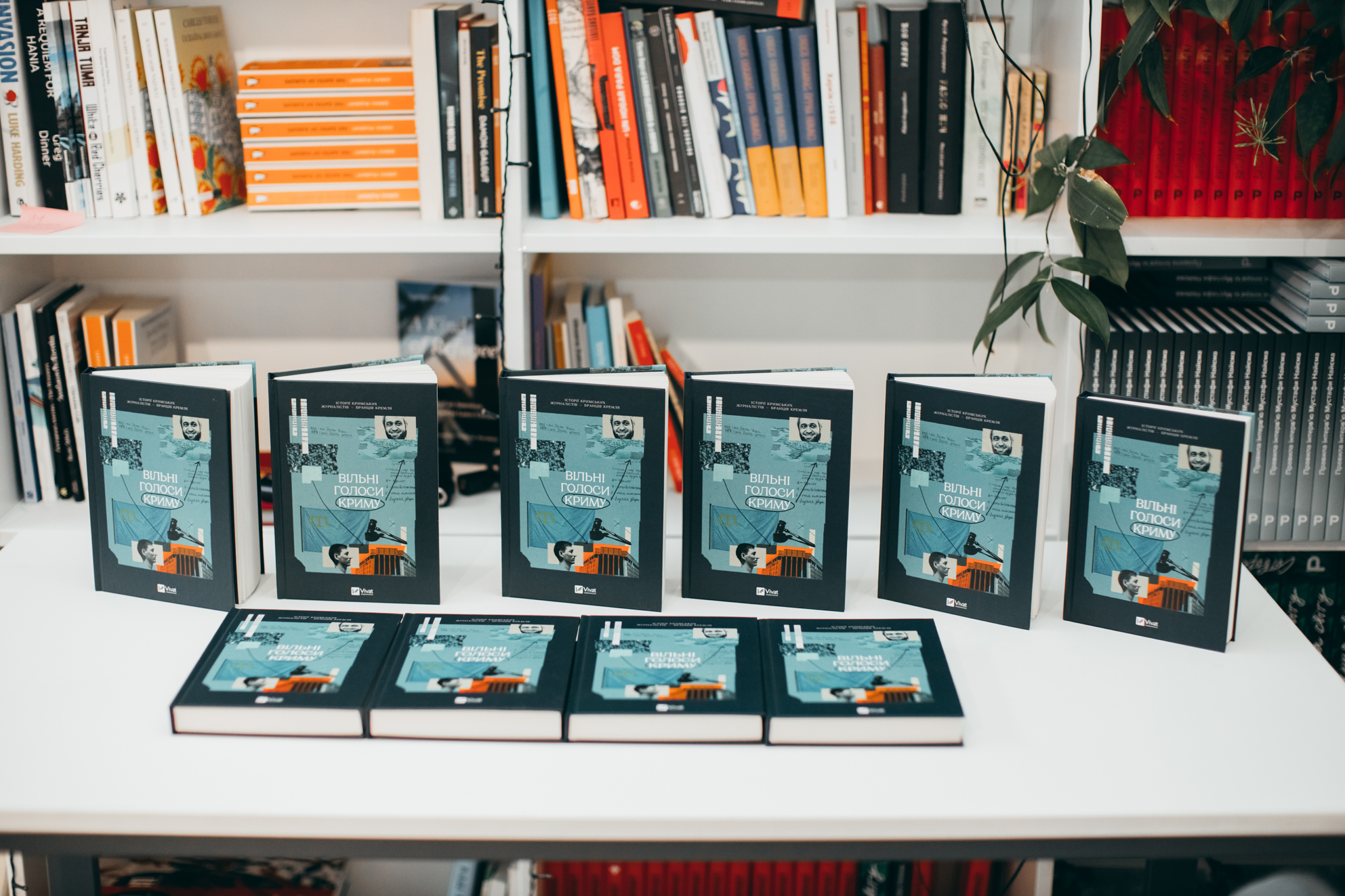
The presentation took place on the Crimean Tatar Journalism Day. It was on 10 April 1883 that the first issue of Terciman was published — the first periodical of the Crimean Tatar people, founded by Ismail Hasprynskyi.
This was the book’s first presentation. If you were unable to attend it, another presentation is being prepared at the Book Arsenal at the end of May 2025, and the organisers are seeking to involve even more voices—relatives, human rights defenders, journalists, and those who care. Follow the announcements.
Photo: PEN Ukraine.
If you have found a spelling error, please, notify us by selecting that text and pressing Ctrl+Enter.

